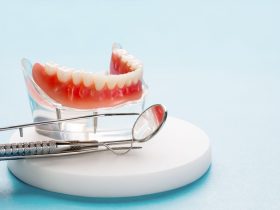Dehydration is a condition that develops when a person loses more body fluids—typically water—than they take in. When the amount of water lost from the body through sweating outweighs the amount of water consumed through drinking, dehydration results. Dehydration, as defined by medical criteria, is when a person has lost so much fluid that their body can no longer function and begins to suffer symptoms related to fluid loss.
Although infants and young toddlers are most susceptible to dehydration, many adults, especially seniors, also face substantial risks. The best treatment for dehydration is TV therapy (normal saline); if you experience any symptoms, it is preferable to see a doctor. Call Doctor offers IV therapy in Dubai.
Every day, people lose water through sweat, perspiration, stools, and water vapor from their exhaled breath. Tiny amounts of salt or electrolytes are lost along with the water. Human bodies regularly rebalance the ratio between fluid intake and water (and salts or electrolytes) losses. Our bodies may need liquids and become out of balance or dehydrated when we lose too much water.
Dehydration is typically divided into three phases by doctors: minimal, medium, and severe, respectively. Oral consumption of fluids containing electrolytes (or salts) lost while activity can cure or restore mild and frequent, even significant dehydration. Some mild and severe dehydration cases might result in death if not diagnosed and addressed.
Dehydration Warning Signs
Dehydration is most prevalent while you are recuperating from illness, a strenuous workout, or a night of binge drinking. Additionally, it is a common risk for young children, diabetics, and babies. How do you determine if you are dehydrated, though? Pay attention to these symptoms of dehydration and get IV therapy in Dubai:
- Thirst: If you feel thirsty, your body alerts you to drink some water to replace the fluids you have
- Lightheadedness: If you become lightheaded after sticking up, you need to drink water.
- Exhaustion: Your body cannot function properly without enough water. If you feel tired or lethargic, your body needs water to re-energize. Moreover, dehydration can cause headaches.
- Dizziness can also be a great sign of dehydration. Additionally, you might feel frail or crazy. When you get up, if you have dizziness and it persists for more than a few seconds, you should see a doctor.
- Urinary symptoms: Dark urine or less frequent urination than usual may indicate dehydration.
- Age. Dehydration is more likely to occur in younger people and older people. Older people may dehydrate more quickly than others since they typically have smaller fluid reserves. Young children usually lose more fluids when they are ill.
- Illness that makes you throw up and have diarrhea. If we cannot replenish the fluids, we lose them when we are sick; it is simple to get dehydrated.
- With severe fever, the body’s vital temperature goes up. Fluid loss may occur, particularly if the fever is associated with sweat or other symptoms that cause dehydration.
- Excessive sweating: Dehydration can result from strenuous exercise or excessive time outdoors in hot weather, especially if you do not drink enough water.
Are you Experiencing Dehydration and need IV Therapy in Dubai?
Dehydration in patients can result from numerous factors, including excessive exercise, diarrhea, vomiting, and alcohol usage. Contact Call Doctor 800 200 400 now to book your iv therapy Dubai at your home, office, or hotel convenience.








Leave a Reply